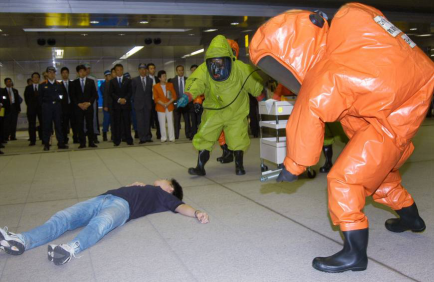
Fire Department officers take part in an anti-terrorism drill in Tokyo in July 2004. | AP
Widely regarded as a safe place to live, Japan currently sits in ninth position on the Global Peace Index’s list of the most peaceful nations on the planet. The East Asian nation is generally believed to be an orderly society that has incredibly low homicide and assault rates, and it certainly doesn’t feel very dangerous walking around the center of Tokyo late at night.
Has this relatively sedate atmosphere lulled the country into a false sense of security when it comes to preventing acts of terrorism?
Despite being labeled an enemy by the Islamic State group (also known as ISIS), Japan is not typically considered to be at risk of terrorism, due in part to its largely pacifist global stance and strict immigration laws. As we’ve seen in past, however, acts of terrorism that have been carried out by groups or lone-wolf operatives can happen anywhere, even in locations that are considered safe. A case in point being the 2011 massacre at a summer camp on the island of Utoya in Norway, where Nazi sympathizer Anders Behring Breivik murdered 69 people after earlier killing eight in a bombing in Oslo.
Religious threat
The worst terrorist assault in modern Japanese history occurred 22 years ago this month when the Tokyo subway system was targeted with toxic chemicals. Five men traveling on three different train lines during rush hour punctured and then dropped plastic bags containing the nerve gas sarin on March 20, 1995. Within hours of the incident, 12 people had died and about 5,000 commuters had sought medical attention. The number of fatalities would have been far higher had the sarin been pure.
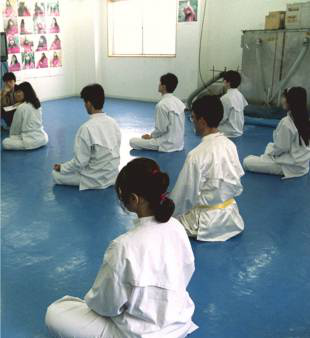
Followers of the Aum Shinrikyo doomsday cult meditate in a room in Fujinomiya, Shizuoka Prefecture, in March 1995. | KYODO
The perpetrators and their getaway drivers all belonged to the religious cult Aum Shinrikyo, which was headed by Shoko Asahara (who was born Chizuo Matsumoto). The self-proclaimed guru promised to rid his disciples of their sins once they’d rejected materialism and donated all their money to the cause. Under his leadership, a number of people were allegedly murdered, including anti-cult lawyer Tsutsumi Sakamoto and his family.
In 1994, eight civilians died when the group released sarin gas at an apartment complex in Matsumoto, Nagano Prefecture. That same year VX, the lethal nerve agent that was allegedly used to kill Kim Jong Nam, the half brother of North Korean leader Kim Jong Un, was used in the assassination of an Osaka officer worker and the attempted murder of two others. In 1992, 40 Aum members had reportedly visited Zaire in an unsuccessful attempt to obtain the Ebola virus, which they had intended to use as a biological weapon.
In spite of all this, Asahara’s sect managed to fly under the radar, going about its business undetected. These days so-called dangerous religions associated with the group, namely Aleph and Hikari No Wa (The Circle of Rainbow Light) are closely monitored by the Public Security Intelligence Agency (PSIA) and the National Police Agency.
Domestic terrorist threat
I witnessed this surveillance in person during a recent visit to Hikari no Wa’s headquarters in Tokyo’s Setagaya neighborhood. After being greeted by both a plain-clothed and a uniformed officer, I sat down with the organization’s leader, Fumihiro Joyu. A former spokesman for Aum Shinrikyo, Joyu says he regrets his actions during the mid-’90s, when he often appeared on TV vehemently denying the group’s involvement in the subway attack. While members of Aleph are still believed to be devoted to Asahara, Joyu claims to have moved away from his teachings and has publicly renounced the man he once saw as a mentor. Due to his pivotal role in the sect, however, he’s highly unlikely to ever win the trust of the public.
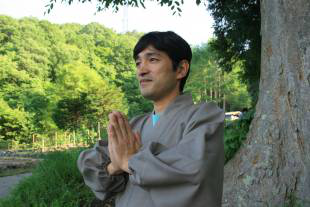
Hikari no Wa leader Fumihiro Joyu believes the most likely terrorist threats will either come from abroad or from a domestic attacker acting on their own. | COURTESY OF FUMIHIRO JOYU
“I used to be on the side of the criminals, now I’m worried about becoming a victim myself,” Joyu says. “Japan has been a peaceful country since World War II but with the Olympics coming up, you never know what could happen. In a way, the fact that it’s so safe could make this country more vulnerable.
“Before the 1940s, you had a police agency strictly watching opposition groups against the regime. The public hated that and has subsequently been given a lot of freedom over the past 70 years. You don’t have an organization such as the CIA or MI5 here. The PSIA doesn’t have anything like the same kind of power. There’s no real engagement in espionage activities and its wiretapping capabilities are limited. Aside from observing Aleph and ourselves, I’m not sure what it does.”
In terms of a domestic threat, though, Aleph and Hikari no Wa seem to be the organizations of most interest. Viewed as potentially dangerous splinter groups by the public and the authorities, they will remain under close surveillance until at least the end of 2018. Instead of watching day-to-day activities, Joyu feels the PSIA would be better off speaking with former Aum members to get a better understanding of the terrorist cult.
“That’s what an American research institute (named the Center for a New American Security) did,” Joyu says. “Led by former naval secretary Richard Danzig, it interviewed people who’d been in Aum, including myself and members who’d been imprisoned, to find out how the chemical weapons had been developed and to gain an insight into our psyche. I saw a statement by victims’ families of the sarin gas attack in Matsumoto asking for the authorities here to do something similar, but the Japanese government doesn’t think that kind of research is necessary.
“The only tactic seems be the observation of groups that have caused trouble in the past. That isn’t going to prevent a future atrocity. In my opinion, the most likely threats will either come from abroad — because Japan is seen as being part of an international system basically ruled by the U.S. — or from individuals, where a disillusioned person or small number of people may do something drastic in protest to what is deemed an increasingly unequal society. As for domestic organizational terrorism, I think it’s now practically impossible for a group as big as Aum to plan an attack secretly.”
Skeptics would argue that these are the kind of comments you’d expect from a man who was once the spokesman for a terrorist cult. That said, it must be noted that since Hikari no Wa formed in 2007, it hasn’t been involved in any illegal activities and has removed all posters and documents related to Asahara. Democratic Party member Yoshifu Arita — who has written numerous Aum-related books — doesn’t see Joyu’s group as a serious threat. When it comes to Aleph, however, he isn’t so sure.
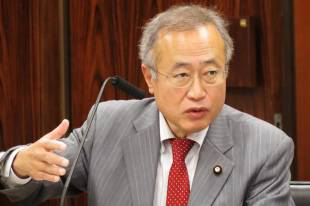
Democratic Party member Yoshifu Arita says that It’s impossible to monitor everyone. | COURTESY OF YOSHIFU ARITA
“Due to the fact that its members continue to follow their former leader unreservedly, Aleph should be viewed suspiciously,” Arita says. “Because of its stance toward Asahara I personally wouldn’t be too concerned about Hikari no Wa, but the possibility of another dangerous cult emerging over the next few years can’t be ruled out. After the incident in 1995, the National Police Agency said it would be difficult to judge the potential threat of new organizations. It’s impossible to monitor all groups and so a surprise attack from an unexpected source, particularly one from abroad, is a possibility.”
Retired FBI agent and former assistant legal attache in Tokyo Edward Shaw agrees.
“From the (1995) Oklahoma truck bombing to both the 1993 and 2001 World Trade Center attacks, some of the most notorious terror assaults have historically come from outside the paradigm people were expecting,” Shaw says. “Between now and the Olympics, an unknown domestic or international group hoping to cause mass panic could come to the surface. Right now, though, the authorities’ focus will no doubt be on radical Islamic groups.”
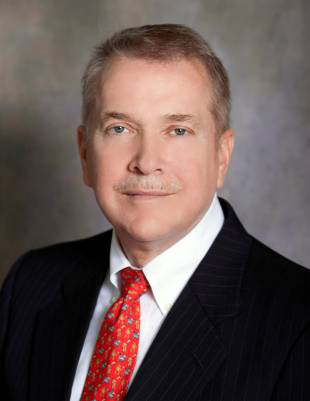
Retired FBI agent Edward Shaw says nobody is better in the world at physical surveillance than the Japanese police. | COURTESY OF EDWARD SHAW
The pressure on these agencies will intensify as the Olympics nears. Between now and 2020, they will continue using highly attended events to prepare for the games. At last year’s Sumida River fireworks display, which draws crowds close to a million people annually, the Metropolitan Police Department’s riot squad formed barricades to block roads so a recklessly driven vehicle wouldn’t have been able to enter. Patrolling police officers had cameras attached to their hats, while members of the department’s Emergency Response Team were on standby with firearms.
“In terms of physical surveillance, there is nobody better in the world than the Japanese police,” Shaw says. “The authorities here are very good at crowd control, public safety and crime prevention. The problem with the Olympics is the number of targets. You can’t monitor everywhere. What you can do is minimize the threat over the next three years by using all the available resources at your disposal such as wiretapping devices and undercover techniques. These are areas where I think this country falls short. Another issue for Japan is a lack of meaningful dialogue with other agencies around the world.
“Being such a high-profile event, there will be organizations interested in causing havoc and they’ll have plenty of time to plan things. It’s a question of whether the counterintelligence and investigative techniques used by the government are good enough to discover a dangerous situation in advance or not.”
(the Japan Times, March 18, 2017)
Original Text from: